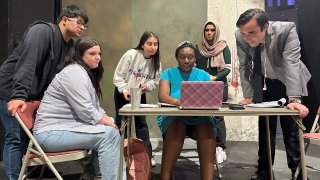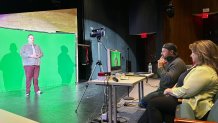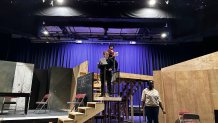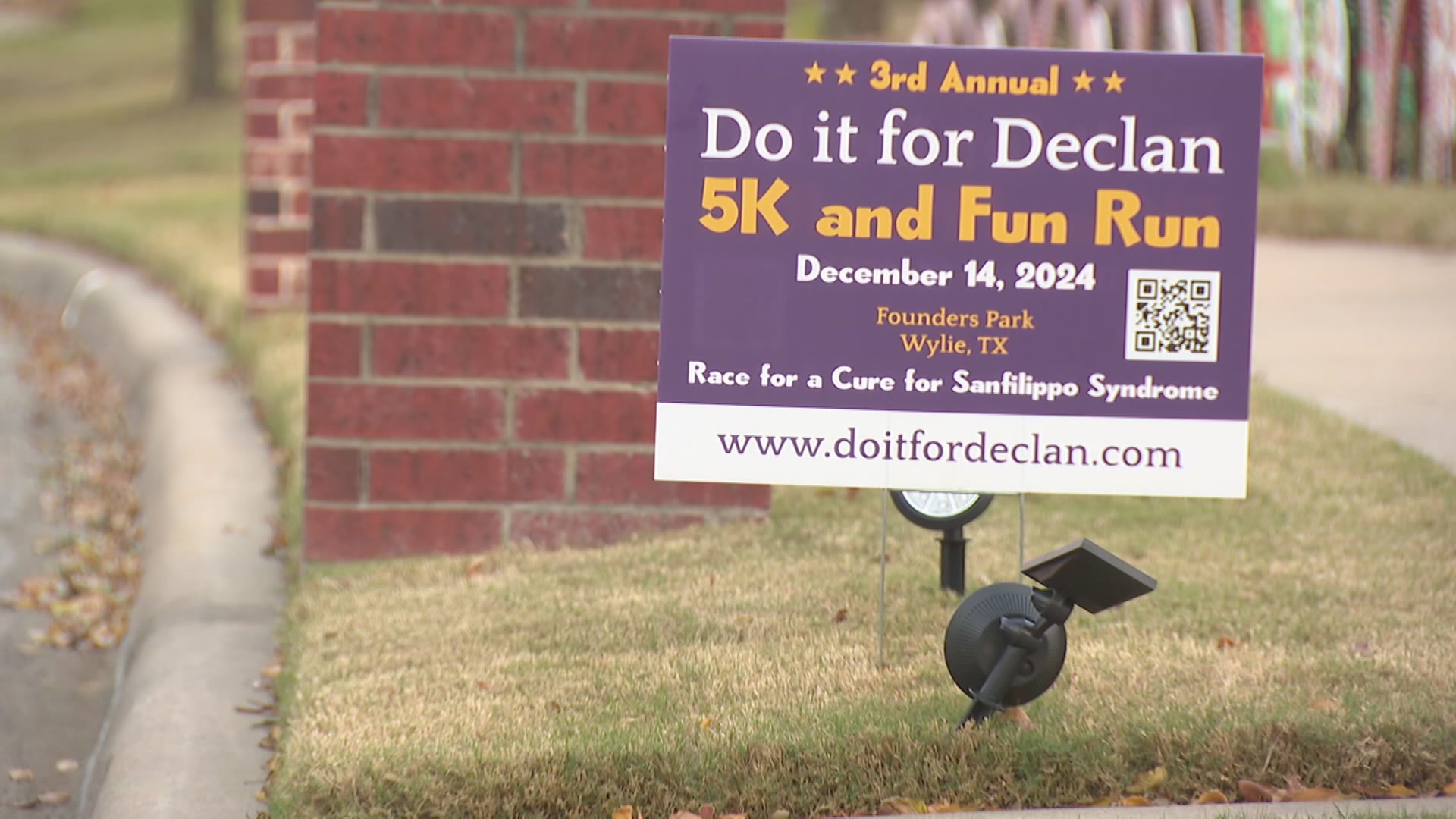
High school students have a lot to say, and they want to be heard. That’s what local playwright Janelle Gray learned when she talked to high school students while developing her play, #voiced.
“What I did find was an immense amount of passion for these subjects. It was just this moment where they were like ’Oh, you want to know what I think?’” Gray said. “There were students that were sitting there that were saying, ‘No, these are things that I struggle with and I kind of bottle it up because when I get home, my parents are so busy saying things at the T.V., I don’t really have a moment to jump in or ask questions.’”
The play focuses on six student journalists on the cusp of graduating from Lamont Private School. A semester before graduation, a mass shooting at a nearby school shatters the community. As they explore the tragedy, they must evaluate issues like parental pressure, racism, immigration, religion, and mental health and decide how much they are willing to risk to stand up for what they believe.
The show has a multimedia aspect, incorporating the role of social media in teenagers’ lives.
Get top local stories in DFW delivered to you every morning. >Sign up for NBC DFW's News Headlines newsletter.
“If I write about a show about high school students, there’s no way you can avoid social media. It became a very big part, almost another character, especially because this is how they were getting information. They aren’t watching the news. They are getting it on their phone,” Gray said.

The play is being staged at the University of Texas at Dallas from Feb. 16-25. Tinamarie Ivey directs the show with a cast of students. She knows the play’s issues resonate with performers who are not much older than the characters they play.
Local
The latest news from around North Texas.
“High school isn’t your parents’ high school. The topics that students are distracted about are very adult topics and they affect them on a daily basis,” Ivey said. “This is very visceral for them and it’s exciting, but it’s a delicate process, making sure that you are honoring the voices that they bring to the table and to the acting space, and to the voices that the playwright, Janelle, has so brilliantly exposed on paper.”
Freshman Charidan Matties plays Shessy Garland, the valedictorian with a bright future ahead of her at college. Matties, who was the president of her class at Pittsburg High School in Pittsburg, TX, has a lot in common with her character.
“We’re both overachievers,’ Matties said. “I’m used to working hard, getting good grades and being successful.”
Her character has loving parents who have high expectations. As Garland sees protests unfold following the shooting, she is torn.
“They ask so much of her and she doesn’t want to let them down,” Matties said. “I find Shessy is a very strong character, a very smart character. She is very brave and courageous and she fights for what she believes in, but sometimes it can be a little conflicting with the situation she is in and her circumstance.”
While workshopping the show, another school shooting occurred.
“It made us very aware of the story we were telling. The show is not pretending to solve any of these issues, but we are trying to show there are humans impacted by this,” Gray said.
The play investigates how gun violence impacts an entire community.
“When we think about trauma and gun violence, we’re experiencing this on a regular basis, even outside of the schools, but I think there’s something unusually traumatic when we think about gun violence in schools,” Ivey said. “I think that communities stay in a perpetual state of trauma because of the powerlessness of not being able to do something that will stop this kind of violence seems astronomically impossible. But it’s not. I believe that art has the ability to help people find the language and the potential for change.”
Matties did not experience gun violence or racism in high school. Those were issues she heard on the news, happening in other places.
“I didn’t really grasp the severity of the situation, but after being in this play and learning about these characters and the stories that are being told, it gives me the opportunity to be put in their shoes, to see their perspective,” Matties said. “It’s really eye-opening. I really enjoy it. I love it.”

#voiced challenges audiences to think about empathy, social justice, and how they make themselves heard.
“I hope it opens up an avenue of conversation between the generations,” Gray said. “What I’m hoping is that we get a chance to learn from each other, where younger people think to listen to learn the wisdom of the older generations, but the older generations seek to learn the empathy of the younger generations.”
“I really hope that audiences will understand the power of art and activism as a collaborative effort,” Ivey said. “I really believe activism belongs in the arts.”
“I really hope that it encourages people to speak their truth, and don’t shy away from what you believe in, how you feel and who you are because you never know what other people might be going through,” Matties said. “They might be going through the exact same thing.”
Learn more: University of Texas at Dallas



